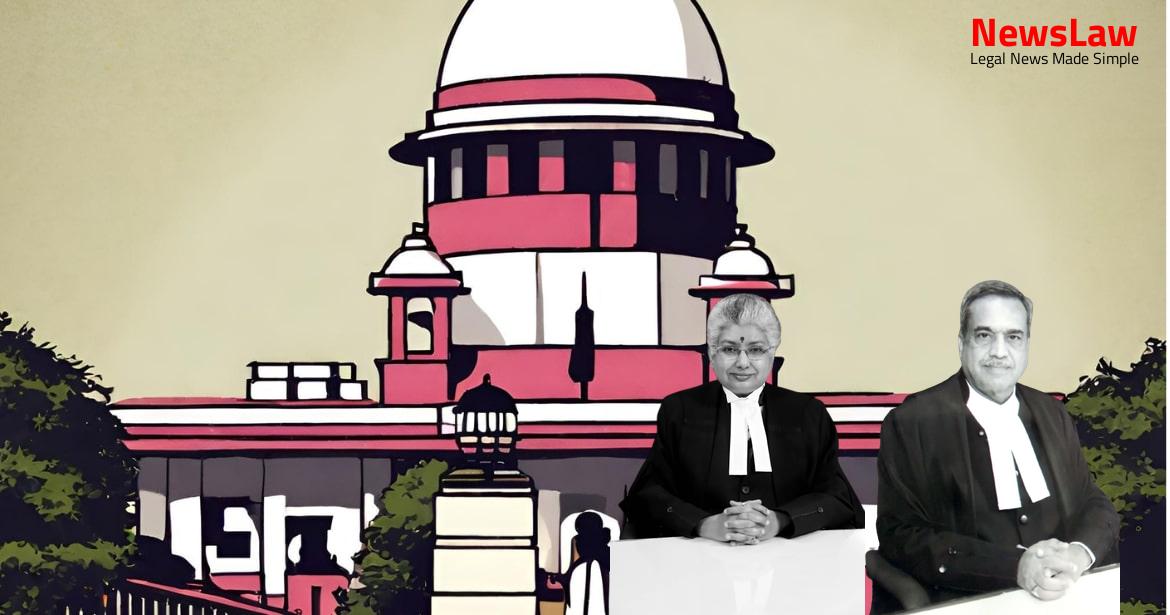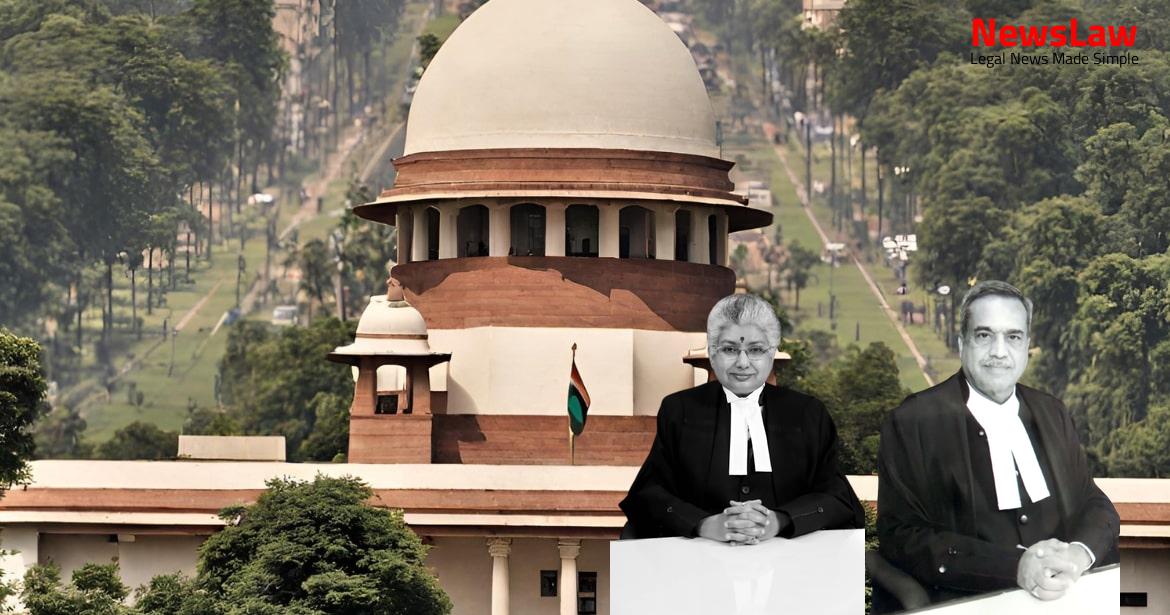Delve into the complexities of interpreting what constitutes ‘suitable employment’ in compassionate appointment cases as per Rule 5 of the Dying-In-Harness Rules, 1974. This case summary sheds light on the legal analysis of the court’s viewpoint, emphasizing the need for a nuanced understanding of legislative provisions in such matters.
Facts
- The appellant rejected the offer of a Class-III post and expressed his disinclination to join.
- The appellant’s father, who held the post of Sweeper, passed away.
- The appellant approached the Court for consideration of his representation.
- The appellant was offered the post of Sweeper, the same post held by his late father.
- The appellant applied under Rule 5 of The Uttar Pradesh Recruitment of Dependents of Government Servants Dying in Harness Rules, 1974.
Also Read: Interpretation of Custody in Contempt of Court Case
Arguments
- Respondents rejected the appellant’s representation based on their interpretation of ‘suitable employment’ in Rule 5.
- The Government passed orders following the High Court’s view in W.P.(C) No.2228(SS) 2014, Prakash Agarwal Vs. Registrar General, High Court, Allahabad.
- Appellant’s interpretation of the High Court judgment was contested by the respondent, stating it may not align with the actual ruling.
- The disputed post does not fall under the Uttar Pradesh Public Service Commission as per Rule 5.
- Suitability need not be determined based on the deceased employee’s previous post, argued by the appellant.
- Alternatively, appellant seeks at least the security of employment as a Sweeper if their main contention is not accepted.
- Respondent’s counsel contested appellant’s reference to rules and initiated another writ petition.
- The High Court based its judgment on a decision by the Supreme Court in State of Uttar Pradesh And Others versus Premlata, (2022) 1 SCC 30.
- The Supreme Court held that the High Court misinterpreted Rule 5 of the 1974 Rules in the case at hand.
- The Court disagreed with the High Court’s interpretation that a ‘suitable post’ under Rule 5 of the Dying-In-Harness Rules, 1974 should consider the educational qualification of the candidate, as it would defeat the purpose of compassionate appointments.
Also Read: Enforcement of Arbitral Award – Court’s Legal Analysis
Analysis
- If a State Government servant dies, a suitable employment in Government service can be provided to a family member who is not already employed by the Central or State Government or a related Corporation.
- The employment can be given in a post that is not under the Uttar Pradesh Public Service Commission, as long as the family member meets educational qualifications and other criteria for Government service.
- The application for employment must be made within five years of the Government servant’s death, unless the State Government waives this requirement for undue hardship.
- Efforts should be made to provide employment in the same department where the deceased Government servant worked.
- Special provisions apply for the recruitment of family members of police or PAC personnel who died in disturbances in May, 1973, similar to those for Government servants.
- The appellant sought appointment as Gram Panchayat Officer, a Class-III post.
- The Regulations were amended 11 times, emphasizing immediate relief to bereaved families.
- The appellant rejected an offer for a Sweeper position, potentially due to lack of vacancies.
- The deceased father of the appellant was a Sweeper in a Class-IV post.
- The Rules state appointments should be based on qualification and suitability.
- Annexure P-1 guidelines are not statutory rules but aim for speedy application disposal.
- The father’s occupation as a Sweeper is relevant to the case.
- The appellant claims to be qualified for the Gram Panchayat Officer position.
- Death of an employee creates financial hardship, justifying appointment assistance.
- Rule 5 does not restrict Class-III appointments for dependents of Class-IV employees.
- Applications should not be pending for more than three months.
- Financial status of the applicant cannot be the sole ground for appointment refusal.
- The law interprets ‘suitable employment’ based on the deceased employee’s position.
- Appointments cannot be refused due to lack of available posts.
- Revealing relevant Rules could have impacted the Court’s decision.
- WP (C) filed by Prakash Agarwal Vs. Registrar General, High Court, Allahabad under No 2228 (SS) 2014.
- Order passed by Hon. High Court, Lucknow Bench on 17.04.2014.
- Reference made to the judgment of the High Court in State of Himachal Pradesh and Another versus Shashi Kumar, (2019) 3 SCC 653.
- Contention that appointment under the compassionate scheme should not be viewed as a source of recruitment.
- The appellant may have been persuaded to litigate based on advice given.
- The claim of the appellant for the post of Sweeper is not unduly delayed, considering the date of the employee’s death.
- The appeal is partly allowed, overturning the impugned judgment.
- The respondent is directed to appoint the appellant as a Sweeper.
- The interpretation of ‘suitable employment’ based on the post held by the deceased employee is deemed reasonable.
- Compassionate appointments aim to provide immediate relief to the bereaved family.
- The case for the appellant’s appointment as a Sweeper is considered justifiable.
- No reason to change the current view on the appellant’s appointment.
Also Read: Ensuring Due Process: Legal Analysis in Contempt Case
Decision
- The appeal is partly allowed.
- The necessary order appointing the appellant shall be issued within eight weeks from the date of production of the copy of this judgment.
- The judgment is passed in the peculiar facts of this case.
Case Title: SUNEEL KUMAR Vs. STATE OF U.P. (2022 INSC 787)
Case Number: C.A. No.-005038-005038 / 2022



